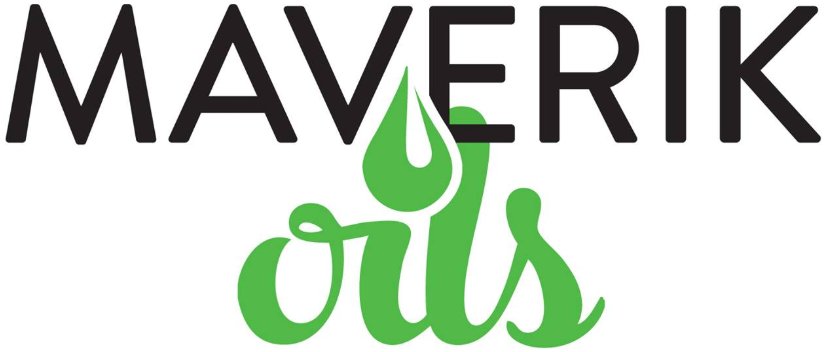Oils That Are PCOS-Friendly and the Ones You Should Avoid
Polycystic Ovary Syndrome or PCOS is a problem that affects about 1 in 10 women who are of childbearing age. Women with this health condition suffer from a hormonal imbalance and metabolism problems that affect their overall health and appearance. PCOS is also a common cause of infertility.
The bigger problem with PCOS is that it isn’t treatable. However, maintaining a healthy lifestyle can help manage symptoms.
If you suffer from this condition, the best approach you can take to reverse the symptoms naturally is by switching to healthier eating habits. By eating right, you will provide your body with the right nourishments, allowing your body to heal from the inside. This will help balance out the hormones, as well as combat a lot of the challenging symptoms of PCOS.
Managing The Symptoms of PCOS
Women who have PCOS are twice as likely to suffer from atherosclerosis as compared to women without the condition. By the nature of the disease, most women who have this syndrome inevitably have several inherent risk factors that can result in heart disease.
Central adiposity (excessive weight around the midsection) is a common side effect for women with PCOS. Other common issues include high blood pressure, low ‘good’ cholesterol levels and high triglycerides. The risk of heart disease and stroke can increase significantly due to these conditions.
Reading all of this, your first thought must be, ‘I need to cut out all the fat from my diet.’ Some women suffering from PCOS often make the mistake of believing that fat is bad for them, and some even try to completely eliminate it from their diet thinking that their symptoms may get worse due to it; however, that is a misconception.
Fat is an essential component of food, and should be an integral part of everyone’s diets, including women with PCOS. In fact, incorporating the right types of fats in diets is crucial for women’s overall health.
Fats provide your body with energy to support cell growth. They also help keep your body warm and protect your organs. In addition to that, fats also play an important role in encouraging the body’s ability to absorb vitamins, minerals and other important nutrients.
The backbone of your sex hormones is also formed with fats. This is especially important to note, since imbalances in hormones cause PCOS. Hence, women who reduce their intake of fats don’t have enough of the natural resources required to correct these imbalances.
 Fats that Are PCOS-Friendly
Fats that Are PCOS-Friendly
When it comes to managing PCOS, it is extremely important to ensure that the fats that you are consuming are healthy. This is as crucial as ensuring that you are getting enough fat in your diet. Following are the types of fats you should be consuming if you have Polycystic Ovary Syndrome.
· Monounsaturated Fats
There are many benefits to consuming monounsaturated fats. However, the positive effect it has on your heart by optimizing your cholesterol is arguably its best quality. This type of fat helps lower the “bad” cholesterol (LDL) in the blood and increase the “good” types of cholesterol (HDL).
When it comes to cholesterol, you need to remember that LDL cholesterol is bad for you, and you need to maintain lower levels of it. On the other hand, HDL cholesterol is good for your health, hence, you need to maintain higher levels of it. When you maintain the recommended levels of these two types of cholesterol, it lowers your risk of heart disease and stroke.
In addition to being good for cholesterol, monounsaturated fats also have a positive effect on insulin levels and in controlling blood sugar levels. For women with PCOS, this can be especially helpful. These fats offer nutrients that help with the development of cells and provide a healthy dose of vitamin E in the diet.
To ensure you are getting enough monounsaturated fats, you should add the following oils to your diet.
-
Extra Virgin Olive Oil
Extra Virgin Olive Oil or EVOO is considered the holy grail in the world of oil. It is arguably the healthiest type of fat out there, and should be a part of any healthy diet. EVOO is extracted by pressing olives, and is less processed. Hence, it is considered to be an unrefined oil. It has the highest percentage of monounsaturated fats among any natural cooking oils. In addition to being PCOS-friendly, there are various benefits of consuming extra virgin olive oil. It is also rich in antioxidants, specifically, one known as polyphenols. It is a beneficial compound of the plants which has shown to have a positive effect on heart health.
However, since extra virgin olive oil has a low to moderate smoking point, it isn’t a good idea to cook with it. Instead, it can be used in salad dressing, dips, drizzles, etc. It has a tangy and fruity flavor that can help enhance the flavor of any dish.
-
Cold-Pressed Sesame Oil
Sesame oil is a staple when it comes to Asian, Middle Eastern and Indian cooking. Sesame oil provides a good balance of monounsaturated and polyunsaturated fats (another fat that is PCOS-friendly as we’ll discover further on). Although roasted sesame oil can also be a good addition to a healthy diet, the cold-pressed kind is better when it comes to managing the symptoms of PCOS.
Just like EEVO, cold-pressed sesame oil also has a low smoking point. This makes it unsuitable for cooking. However, it has a nutty flavor that can provide a bold flavor to most dishes. If you plan on using it for cooing purposes, opt for toasted sesame oil.
-
Avocado Oil
Just like the fruit, avocado oil can also be a healthy addition to your diet. About 70% of the fats in avocado oil are monounsaturated, making it one of the best sources. This is only second to olive oil among cooking oils in terms of monounsaturated fat content.
However, avocado oil has a high smoking point and a neutral taste, making it ideal for cooking purposes. It doesn’t overpower the taste of the dish, and is suitable for roasting, sautéing and grilling, as well as for raw use in salad dressings and dips. The only downside to this oil is that it can be a little difficult to find and tends to be on the expensive side. But if you can get your hands on this oil, then it can help your condition in multiple ways.
· Polyunsaturated Fats
Polyunsaturated oils are as PCOS-friendly as monounsaturated fats. Most of the oils you use for cooking are high in either polyunsaturated fats or saturated fats.
Polyunsaturated fats are used by the body to build cell membranes and line the covering of the nerves. They play an important role in blood clotting, controlling inflammation and muscle movement. According to some studies, replacing saturated fats or highly refined carbohydrates with polyunsaturated fats reduces the levels of harmful LDL cholesterol in the blood and has a positive effect on the body’s cholesterol profile. Additionally, they can help lower triglyceride levels.
In addition to sesame oil, the following are some of the oils that can help increase your consumption of polyunsaturated fats.
-
Sunflower Seed Oil
This neutral flavor and light colored oil have one of the highest amounts of polyunsaturated content, as 69 percent of the fat comes from it. It also has a healthy amount of monounsaturated fats (20 percent) and is also low in saturated fats (11 percent). This balance of fats makes it a very good option for heart health.
Due to its high smoke point and neutral flavor, sunflower oil is a great all-purpose oil that you can keep in your pantry at all times. However, when using it to boost your levels of polyunsaturated fats, make sure you don’t purchase the ones that are labeled as “high-oleic” version of sunflower oils. These are processed to be richer in oleic acids, which boosts monounsaturated fat levels. The fatty acid profile of these oils would be similar to that of olive oil, and it can be healthy if you are looking for an oil rich in monounsaturated fats. However, for increasing our consumption of polyunsaturated fats, opt for the pure, unrefined versions of this oil.
-
Flaxseed Oil
Aside from being rich in polyunsaturated fats, flaxseed oil is also a great source of omega-3 fatty acids. When consumed in a healthy amount, omega-3 fatty acids are known to help with various things such as promoting healthy pregnancy, decreasing the risk of depression, dementia, memory loss, etc. However, the body doesn’t produce the fatty acids by itself, hence it is required that you add it to your diet.
However, flaxseed oil has one of the lowest smoke points and can burn instantly when it comes into contact with heat. Hence, it should never be used for the purpose of cooking. Instead, you can use it in salad dressings and can drizzle it over hummus and other such things. Flaxseed oil can also be taken raw in the morning for the best benefits. But make sure you don’t go overboard with it, as a tablespoon is more than enough.
-
Safflower Oil
Safflower oil is another oil that is high in healthy fatty acids and lower in saturated oils. It also has a good amount of omega-3 fatty acids. A good PCOS-friendly diet focuses on increasing the amount of omega-3 fatty acids; hence, it is a good idea to add this oil to your diet.
The great thing about safflower oil is that it has one of the highest smoking point of any cooking oil, even if it is cold pressed. It also has a neutral flavor, which makes it an ideal oil for cooking purposes. Hence, there is no reason not to add this oil to your diet.
 Unhealthy Fats for PCOS
Unhealthy Fats for PCOS
Unlike monounsaturated and polyunsaturated fats, there are some kinds of oils that may not be very PCOS-friendly and should be avoided if you are trying to manage the symptoms.
· Saturated Fats
In order to create a healthy diet that is PCOS friendly, it is important to eliminate all oils that can increase inflammation. Found in meat, butter, cheese, and various oils, saturated fats can contribute to inflammation. Additionally, it can increase you levels of LDL cholesterol and decrease the HDL cholesterol in your blood.
Although small amounts of saturated fats are helpful and even required by the body to function, these levels can be achieved by adding the above mentioned oils to your diet. In fact, these should be limited to about 10% of your caloric intake or less. This would be about 20% of saturated fats per day.
Most fats that are solid at room temperature are saturated. However, there are other oils that can be high in saturated fats as well. And although these fats can be a part of a healthy diet otherwise, women with PCOS should avoid them to better manage their symptoms. These fats are:
- Coconut oil
- Palm oil
- Palm kernel oil
- Grapeseed oil
- Margarine
- Butter
- Beef tallow
- Cocoa butter
- Lard
Although there still isn’t a treatment that can completely cure PCOS, by ensuring that you follow a healthy diet and lifestyle, you can manage the symptoms in a manner that reduces its effect on other aspects of your lifestyle. Adding these healthy oils to your diet can be a good place to start.

 Fats that Are PCOS-Friendly
Fats that Are PCOS-Friendly Unhealthy Fats for PCOS
Unhealthy Fats for PCOS
